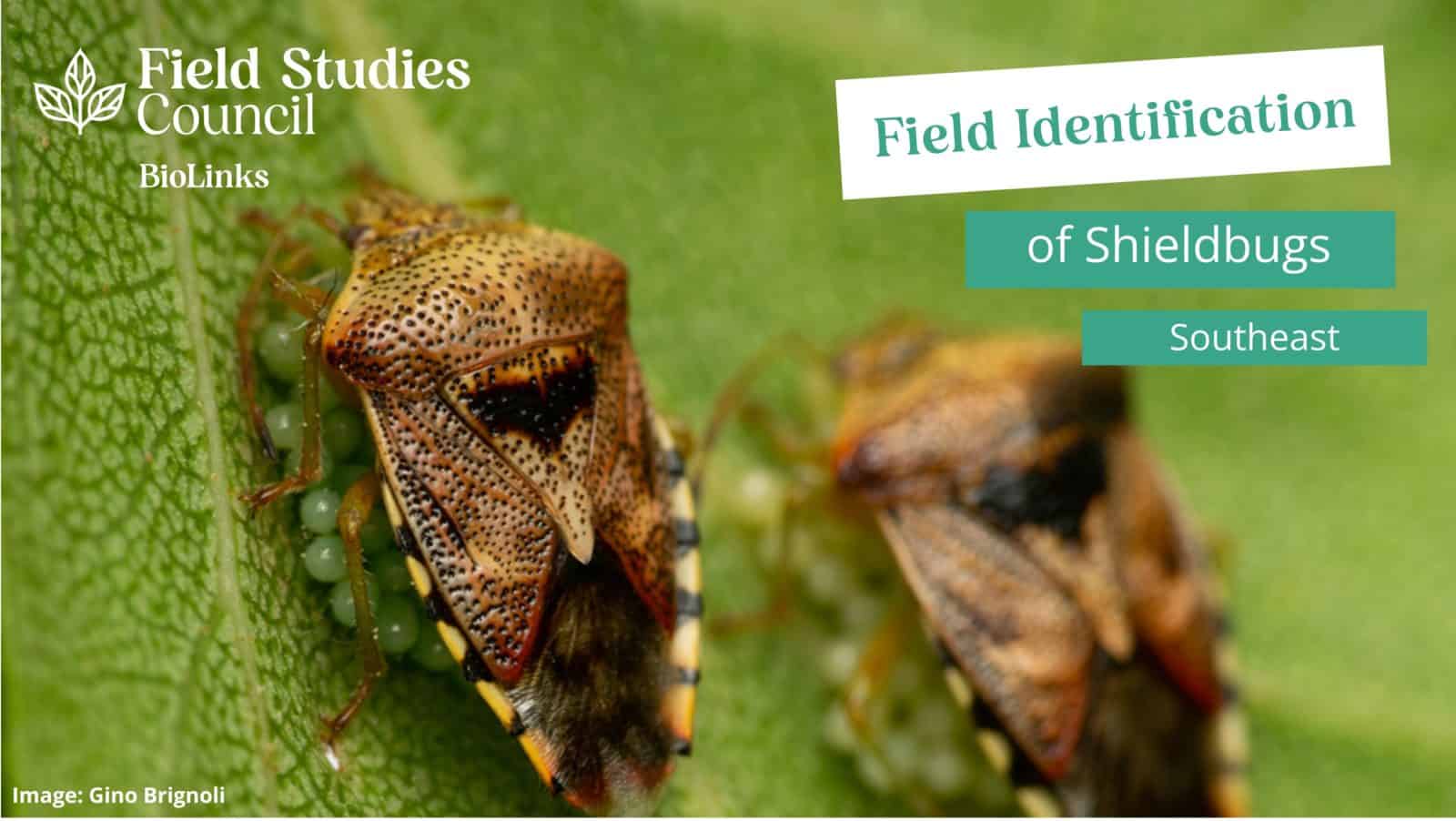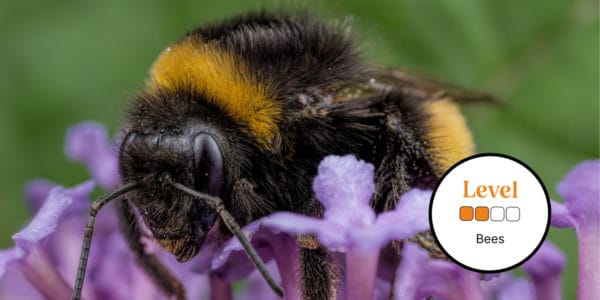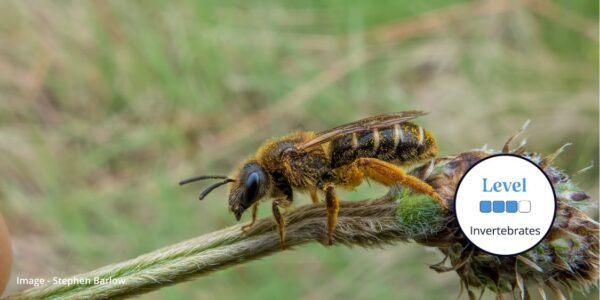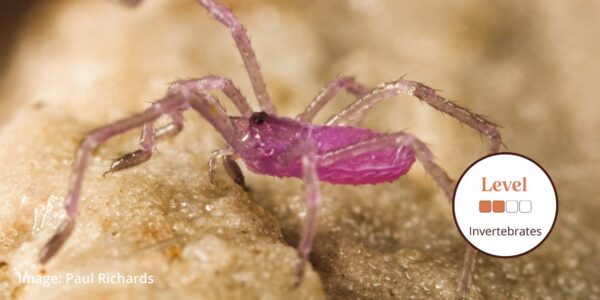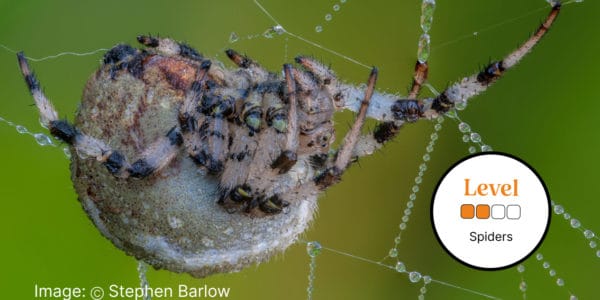True bugs (Hemiptera) are one of the largest groups of insects found in the UK, with nearly 2000 species. There are around 45 species of shieldbugs.
They are characteristic, colourful, and immediately identifiable bugs, named after their shield-like shape. They are found in most habitat types, some species are carnivorous, but most feed on sap sucked from foliage and berries etc.
This course marries together the use of classroom-led learning and outside learning opportunities led by an expert tutor to give learners the skills to be able to identify distinctive species of shieldbugs in the field.
- Certificate upon course completion.
- Please email [email protected] if you have any questions.
- Please note that this course is NOT a species identification course and will only go as far as categorising British true bugs into broad ecological categories.
This course is aimed at adults only and course attendees must be at least 18 years old in order to attend.
What will be covered during this course?
- Separating true bugs from other similar looking insect orders.
- An introduction to shieldbug classification and separating shield bugs from other groups of true bug.
- Identification of distinctive species of shield bug using a hand lens and field characters.
- Help to learn and practice identification techniques.
- Introduction to submitting shieldbug records.
See the ‘Example Timetable’, ‘What’s Included’ and ‘Before You Attend’ sections below for more information about this course.
Course Fees
Regular Price: £75 For professionals and residents outside of the UK. Select ‘Attendee: In Person’ Sold Out
Subsidised Price: £10 Subsidised by the FSC BioLinks project for non-professionals eg. volunteers, biological recorders, wildlife gardeners, amateur naturalists and students.Available to UK residents only. Select ‘Attendee Subsidised: In Person’
Tutor: Joe Gray
Joe Gray is the Hertfordshire (VC20) county recorder for shieldbugs, plant bugs, and allies and is a regular contributor to The Hemipterist, a journal covering the order in which shieldbugs sit. He is also a co-founder of the Herts Invertebrate Project, which is an initiative aimed at increasing the recording of invertebrates through a series of site surveys each year. Joe has been awarded Fellowships of both the Royal Entomological Society and the British Naturalists' Association. For the latter, he runs insect-focused field meetings in the Herts area.
Covid Measures
In order to keep our customers and staff safe we ask that anyone attending our centres:
- wears a face covering when in shared indoor space (unless exempt).
- maintains social distancing.
- cleans their hands regularly.
- takes a Covid-19 test before they arrive.
Example Timetable
- Please arrive in time for the course to start promptly at 10:00 am.
- Refreshments will be available from 9.45 am.
- The course will end at 4:00 pm.
What's Included
- 6 hours of tuition
- Certificate of attendance
- Any excursions will be on foot
Bursaries and Subsidies
FSC BioLinks
FSC BioLinks is an exciting project for FSC in the South East and West Midlands, bringing together existing volunteers with skills in biological recording and identification, and new volunteers.
This project provides subsidised training courses, learning opportunities and digital tools focussed on invertebrate identification for anyone involved or interested in biological recording, to build and strengthen the community.
Invertebrates provide us with many useful ecosystem services, like pollination and decomposition, which we cannot survive without but their numbers are declining. Few people know how to identify or record invertebrates meaning there is a lack of data.
We are delighted to have been awarded a grant of £1.23 million from the National Lottery Heritage Fund for this project.
Before You Attend
Getting to Morden Hall Park
Morden Hall Road, Morden, London, SM4 5JD
By underground: Morden (Northern Line), then a 500 yard walk along Aberconway Road, or Wimbledon (District Line) then tram to Phipps Bridge or bus to Kenley Road.
By train:Tramlink to Phipps Bridge stop, on park boundary ½ mile walk from Stableyard.
By road: off A24, and A297 south of Wimbledon, north of Sutton.
Parking: Car parking space limited, 25 yards. We have limited parking available onsite, please consider other ways to get here.
By bus: The following bus routes stop on the boundary of the park: 80, 118, 157, 164, 201, 470, 93, and the K5 route terminates at Morden Station, a 500 yard walk away along Aberconway Road.
What to bring
- Notebook and pencil
- Lunch
- Hand lens (if you have one)
Due to the outside nature of part of this course, participants are advised to bring suitable clothing and footwear in order to access the nature reserve in various weather conditions.
There will be a member of staff with first aid training and access to a first aid kit on site. If you have special medical requirements please let us know as soon as possible so we can plan the course.
Sorry this course has ended

